What’s in a Name? – From Training to Transformational Development
In her essay, Nisha Nair shares her experiences of building the capacities of women facilitators in the Creative Learning Lab program that her organization administers.
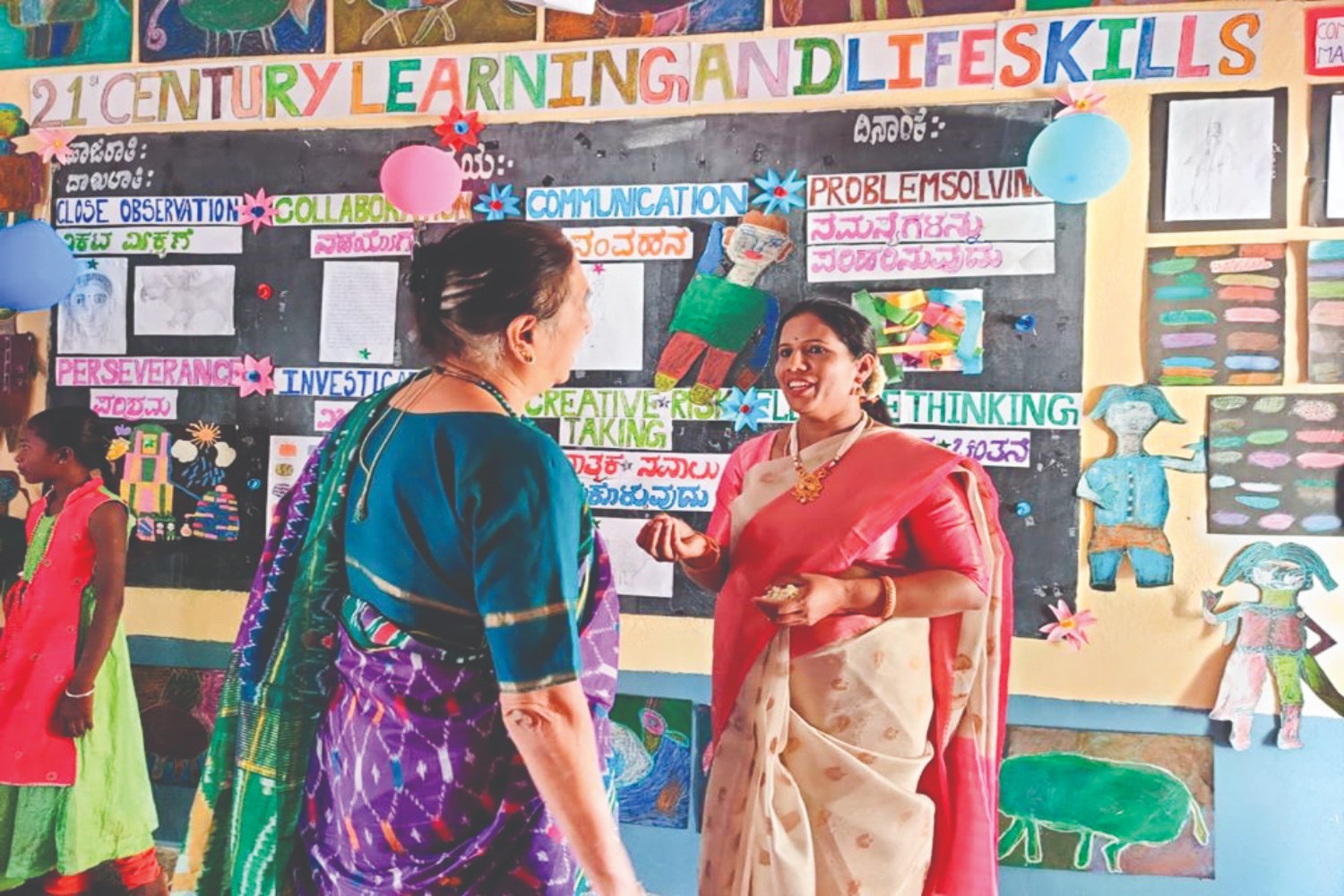
Children from underserved communities encounter numerous challenges that often adversely impact their learning and development. The school experiences for many—characterized by a heavy reliance on textbooks, memorization of content, and narrow assessments in the form of tests— compromise the development of skills and attitudes necessary for children to flourish. This, in turn, limits children’s access to future opportunities.
Disrupting problematic beliefs requires a recognition that these beliefs exist in the first place. And, it involves identifying the root cause of their existence.
There is growing recognition, however, that “with uncertainty about the kind of skills the jobs of the future will require, schools and teachers must prepare students with more than basic reading and writing skills. Students need to be able to interpret information, form opinions, be creative, communicate well, collaborate, and be resilient.” In short, “be equipped with the skills they need to thrive in an increasingly demanding and uncertain world” (World Bank, 2019).
It is against this backdrop that ArtSparks Foundation was established in 2015. ArtSparks is an educational nonprofit organization that uses visual art and design to support the development of 21st century learning and life skills in children, particularly those from marginalized communities. Through our Creative Learning Lab program, we strive to usher in an alternate vision for education—one that embraces broader conceptions of ability; nurtures varied human potential; inspires diverse ways of thinking; and invests, with equal vigor, in children’s creative, cognitive, social, and emotional development.
Enabling Local Participation – Mobilizing Women
In order to administer our Creative Learning Lab program ArtSparks has turned to women from within the local communities where our work is situated. These women, often disempowered by their socio-cultural realities, are not required to possess prior teaching and/or art facilitation experiences. This is primarily because the absence of such experiences does not preclude potential. Neither does the presence of such experiences exclude problematic classroom practices, often acquired within a rigid system of education.
Instead, for this program women are recruited on the basis of need and enthusiasm, as evidenced during the recruitment process. Yet, as we embark on working with them, we are mindful that many of the women’s understanding of teaching and learning, and even art, may have been compromised by their prior experiences as learners themselves. And, that they may carry beliefs regarding ability, intelligence, success, knowledge, and more, that are incongruent to the goals of ArtSparks’ programming for children.
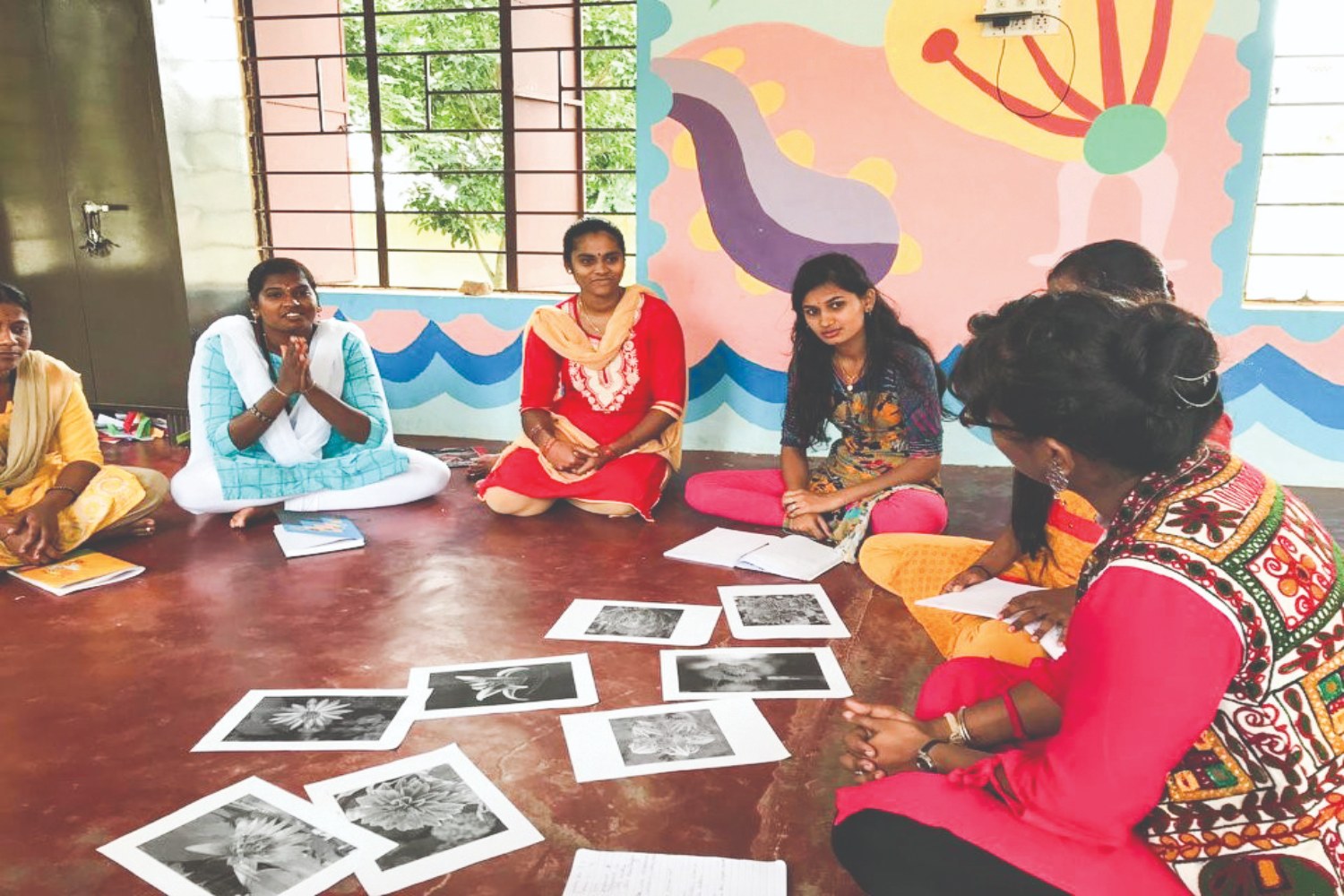
Mobilizing women from local communities has undoubtedly offered us a viable solution that addresses our need for facilitators. However, recognizing the complexity of experiences that our women enter the organization with propels us further to invest in their development in more deep and meaningful ways. When enlisted and empowered, these women display a vested interest in serving the needs of the communities they come from. And they go on to frequently build strong bonds with the families and community members they come in contact with. This in turn enables them to more convincingly advocate on behalf of the children they serve, and their learning and development. This also helps them cultivate their untapped potential to lead change in their communities.
Beliefs and Their Constraints on Teaching Practice
Successful implementation of an educational program that seeks to facilitate a paradigm shift in education hinges on the quality and effectiveness of its teacher development efforts. Transformative educational programming for children calls for more inspired approaches to teaching. Research, however, reveals that teachers’ knowledge and skills are often shaped by beliefs that reflect their sociocultural contexts and experiences. And that these beliefs can exert significant influence on teachers’ actions.
For example, a belief that accepts the existence of hierarchies in society can creep into the classroom, perpetuating teaching practices that maintain hierarchical relationships between teachers and their students. This in turn can inhibit the adoption of child-centered practices that require teachers to break hierarchies and work collaboratively with their students, staying curious, asking questions, and discovering things together as co-learners.
While professional development efforts should engage with these entering beliefs, they often do not. On the contrary, teacher training practices can perpetuate and reinforce these enduring beliefs. For example, the belief that knowledge is fixed can be reinforced through imparting fixed content through trainings. Unexamined, these beliefs can color teachers perceptions, inhibiting their understanding of reform agendas that in turn impact implementation.
For example, teachers’ continued perceptions of themselves as transmitters of knowledge and children as receivers, can result in their integrating child-centered methods into their traditional rote methods of teaching. Outward manifestations of this may include, teachers using props and an engaging tone while still didactically narrating a rhyme, line by line, to their students, who in turn repeat each line back word-for-word. Or, in art, teachers showing their students, step-by-step, how to make a replica of a famous artist’s painting, with students in turn merely recreating the same.
The above illuminates for us the extent to which developing our women facilitators is a complex process that necessitates going beyond the mere provision of content training that delivers neatly packaged program solutions to be adopted. And, compels us to reflect on how failing to acknowledge and engage our facilitators in examining their beliefs can result in them rejecting new knowledge or continue to operate in earlier modes due to its inadequate internalization. Grappling with these issues and more inform our ongoing efforts to develop our facilitators.
Efforts Towards Transformational Development
Disrupting problematic beliefs requires a recognition that these beliefs exist in the first place. And, it involves identifying the root cause of their existence. At ArtSparks, learning circles offer our facilitators a safe space to congregate and engage in discussions and analysis around a range of topics, such as, the nature of learning, notions of intelligence, definitions of success, and more. These discussions, always connected to personal experience, serve as a way for our women to surface and challenge the legitimacy of previously unexamined beliefs and assumptions.
Combined with immersive embodied experiences, these discussions serve as a pathway to perspective transformation. Additionally, as an organization that upholds the arts, we have also been relying on the visual arts, introducing it as an expressive, emotive tool to propel dialogue, while recognizing the powerful influence that emotions and feelings play in the transformational process. Furthermore, we have found that the creation of art can help transcend the limitations of traditional forms of communication, and allow for an alternate means to surface beliefs that are present deep within the subconscious.
The imaginal quality of art also lends itself for our women to imagine alternate states of being. Moreover, we’re finding, anecdotally, that participation in creative endeavors that enable our women to start seeing themselves in a new light, as creative individuals, has some implications for the way they contribute to the creative re-envisioning of education.
As we continue to engage in this process with our women facilitators, learning from it, and excited by the possibilities it holds, we however understand that addressing beliefs as part of their development is not a singular event. Instead we understand that it is an ongoing effort. Particularly, as entrenched beliefs have the possibility of resurfacing. Especially when considering the complexity of the external environment and the myriad influences it exerts on our women.
A Glimpse at a Facilitator’s Journey
Reflecting back on her school experiences, Roopali (name changed) describes herself as having been an unexceptional, average student. And it is these qualities that she believes caused her teachers to pay no heed to her. Instead, she recalls, her teachers elevating the handful of students that they deemed ‘intelligent,’ worthy of their attention. Being rendered invisible as a child, when she secretly craved the attention of her teachers, was a source of immense sadness. But her behavior turned to defiance when a teacher reprimanded her for the actions of one of the so-called intelligent students. In time, feelings of worthlessness set in, along with a sense of shame, and a strong belief that she would never be successful, all of which contributed to her regular absence from school, and her eventually leaving school. Growing up within an unsupportive family environment, she did not have an outlet to talk about her experiences, and make sense of them. Instead, she internalized her experiences, and over time, believed herself to be the problem.
The effects of these early experiences seemed to have carried over to her adult life. By her own admission, when Roopali attended the recruitment drive organized by ArtSparks, comparing herself to the other candidates present, she did not consider herself worthy of the position. And, therefore, even though she cleared the first round, and was invited back to a second, she did not attend for fear that she would appear foolish and incapable. It took convincing on the organization’s part for her to finally relent.
Once hired, she attended ArtSparks’ trainings. But, despite being introduced to concepts around child development, 21st century learning and life skills development, childcentered teaching practices, and more, having no reference of these from her own personal experiences, she had a difficult time reconciling these ideas. And, as such, she grasped these concepts at a superficial level. Which meant that, during the early phase of her entering the Creative Learning Lab, she abandoned her new learnings and rather unconsciously mimicked her teachers’ behaviors. Behaviors that included, but, were not limited to, teaching in a didactic manner; categorizing children as slow and fast learners; putting the onus of learning on children rather than on herself. It was only when the organization changed its strategy of developing facilitators like her that she found herself gradually embodying the values of the organization and imbibing its methodologies at a deeper level.
Roopali’s metamorphosis is now evident to anyone who meets her. But, maybe, not as apparent as it is to her, as only she knows how far she has come through her journey at ArtSparks. And only she has truly experienced how these shifts have occurred within her in deeply meaningful, yet, sometimes conflicting ways. Reconnecting to, deconstructing, and challenging her prior experiences has allowed her to get to the root of problematic beliefs that have previously stood in her way.
Engaging in acts of self-reflection, and wrestling with the feelings and emotions that emerge as a result, has her empathizing with children and all that they experience. Experiencing growth through confronting rather than avoiding impediments, as someone who was previously thought of as incapable of growth, has her reassessing notions of growth and capability. All of this and more have profound implications for her facilitation practice as she exemplifies the fact that what she does is no longer just work, but a calling.
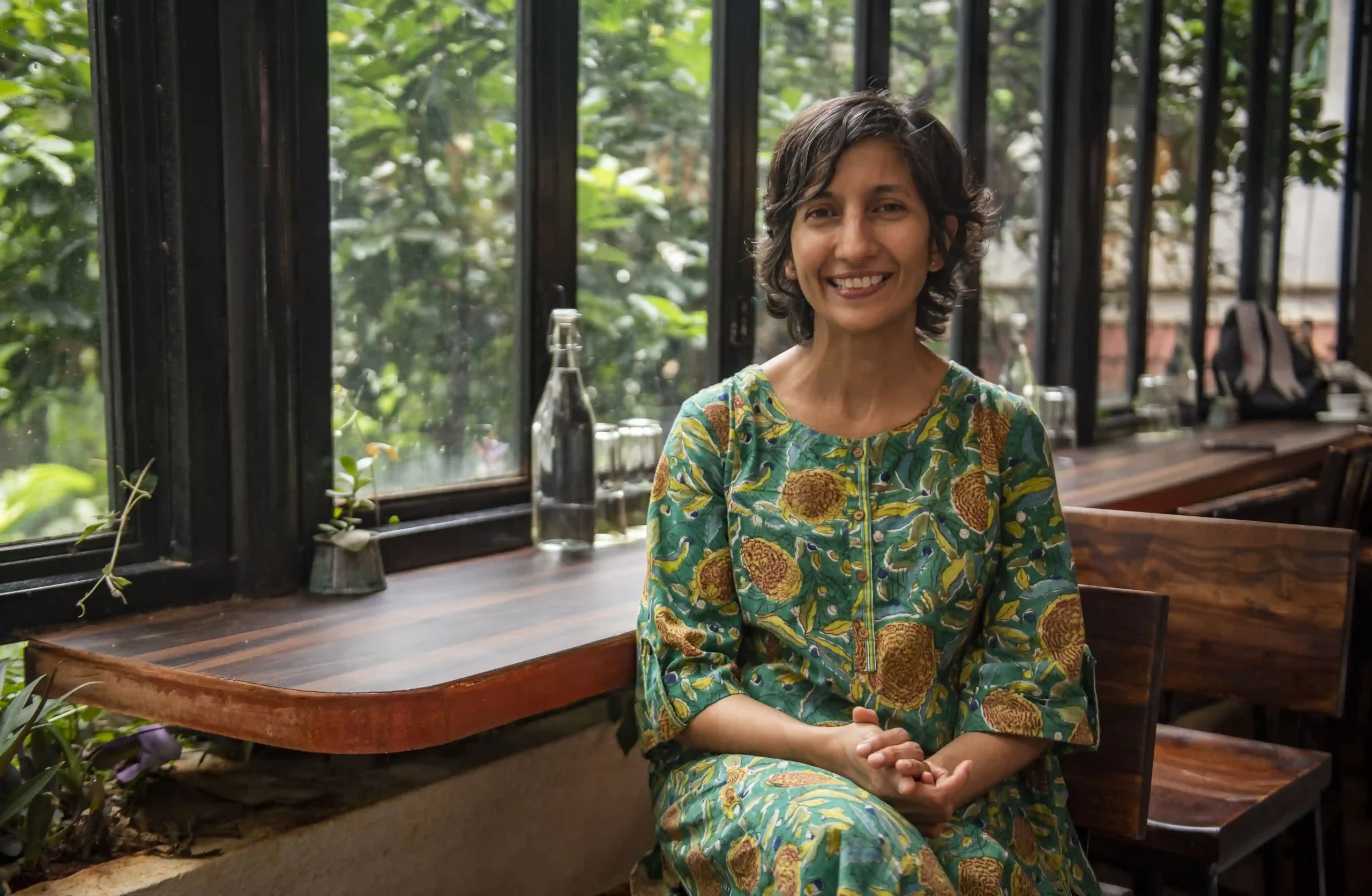
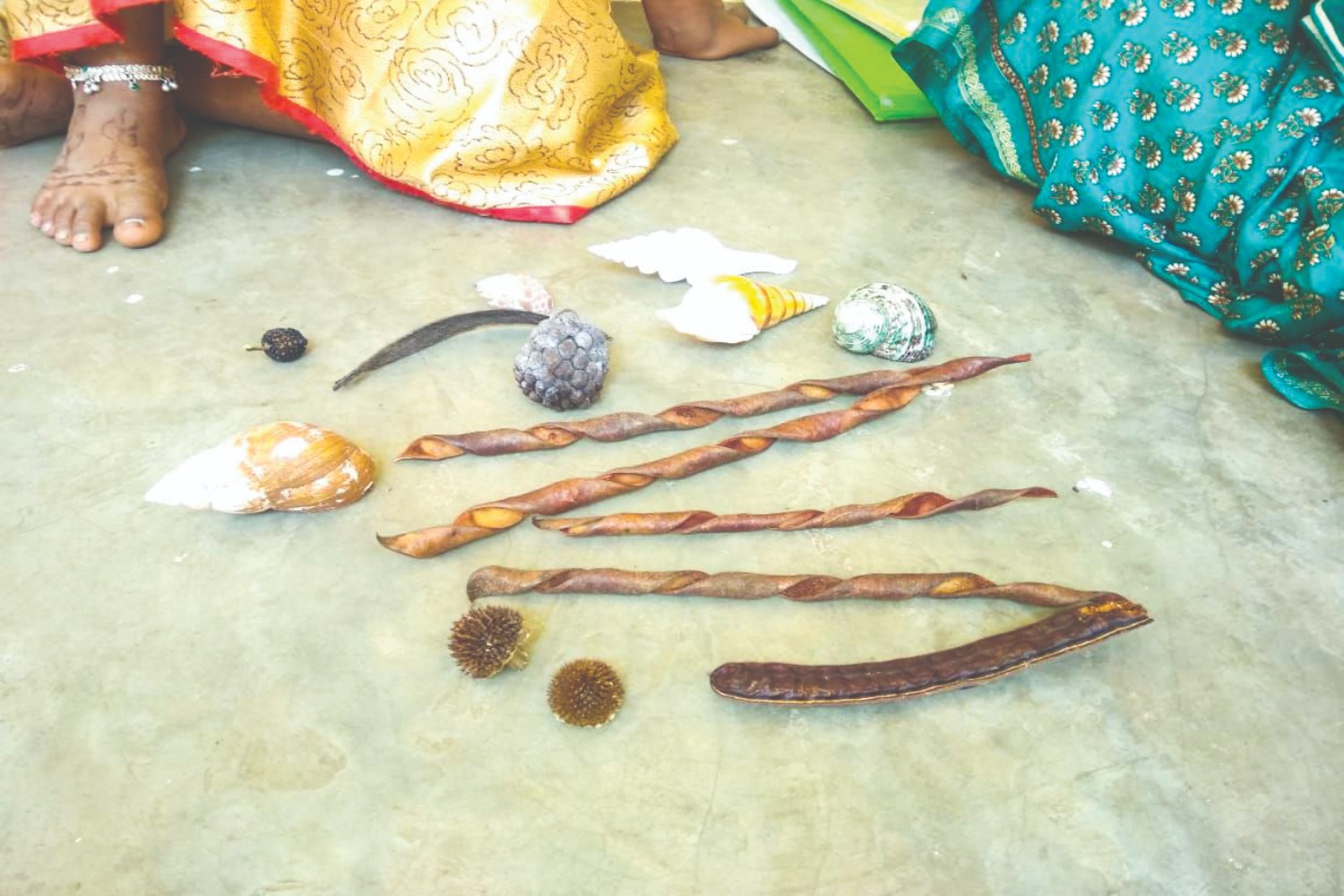
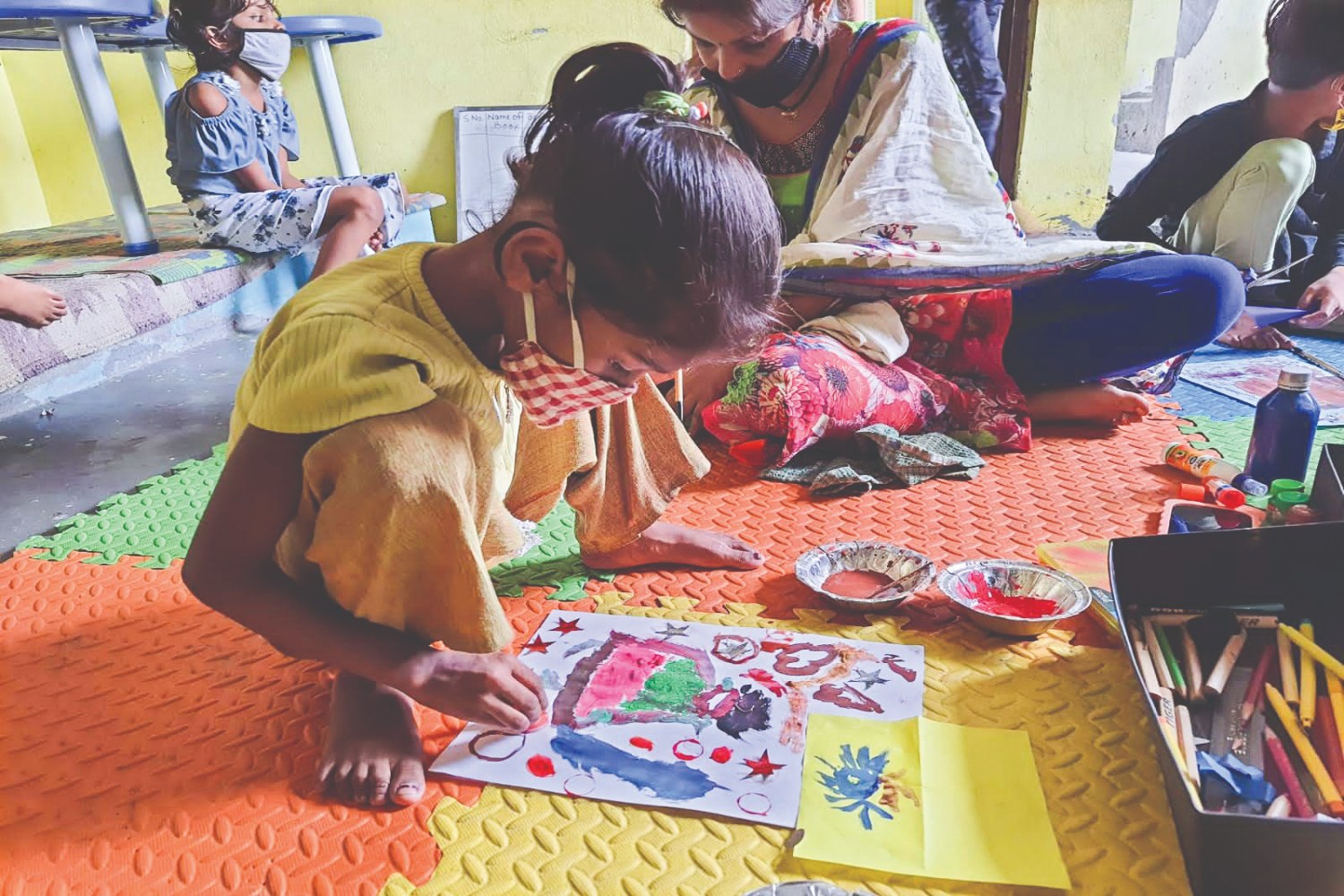
No approved comments yet. Be the first to comment!